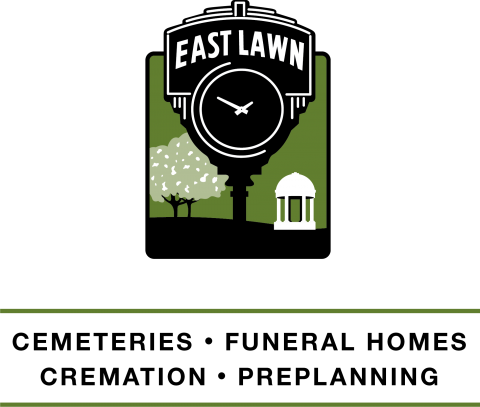Dingites
Years ago I had to relocate temporarily to another town. I said good-bye to my most cherished neighbors—my youngest sister, Eileen, and her family. “Why do you have to go?” my niece, Mary, six, said, showing commendable sorrow. I said I would visit often and she could come see me in the new place. Her four-year-old brother, Johnny, told me to “watch out for Dingites” and gave me a water pistol so I could blast them. Dingites were mutant, grotesque predators of his own invention. What did they look like? They had “eyes with fire in them” and their bones—and here Johnny’s voice usually dropped to a whisper—“their bones were on the outside of their bodies.”
I packed the water pistol and left East Sacramento. The new street in the new town was tidy but had only a meager sprinkling of trees, far from the oasis of elm and sycamore I had come to love. Also, oddly, no porch had any display, not a chair, not a plant. The woman next door, Alma, was eighty-one, had a cactus garden and was a person of perpetually bubbling serenity. “There are three or four …lively people on the block,” she said, “but the rest are quiet.” Three or four? There were twenty-six houses here, so three or four seemed a skimpy ratio of liveliness. “How are they lively?” I said. Alma replied that some people were “curiosities,” and that was fine, but some were lively curiosities, and that could be a problem. “I don’t judge,” she added. “Everyone has potential for good.”
But potential for good is not good enough. I discovered that one house in the middle of the block had been inherited by an emaciated woman who had the eyes of a hunter. Whenever she saw me her glance dove to my purse. Her husband or boyfriend was a sallow man with erratic teeth and one of those skinny methamphetamine mustaches. They were two of the lively ones. Across the street from this couple lived the other lively pair: a plumper man and woman whose multiple tattoos proclaimed their joy in being caucasian. The day I moved in the white-pride people had some kind of fire and dragged a soggy mattress onto their front yard where it lay for a week.
The two couples socialized nightly to a mix of country music and machine-like grinding sounds. Their visitors all looked like them, including the teeth. Two were skinhead males with swastika tattoos. The police usually came around 1 a.m. and often took away the hosts and some of the guests. It was fun to peep through the blinds at this removal but disheartening to see everybody back on the block two days later. In the sunny, still mornings when I left for work the street was quiet, like a town in a spaghetti western before the shootout.
I came home for a weekend and told my sister and friend, Maria, that the two households dominated the block. “Meth,” I said. “Two festering swarms of jackass, Nazi, lowlife…
“Dingites,” Eileen said, because the kids were listening.
One quiet afternoon after a motorcycle revving, shrieking, heavy metal/hillbilly bash the previous night Alma knocked on my door. Her new wheelbarrow was gone and she was sure she saw it in the meth creeps’ driveway, only she didn’t call them creeps—she called them lively. I didn’t understand why Alma needed a wheelbarrow because nary a leaf fell in these environs and her yard was a dry cactus display, but I went with her to the driveway. There was her wheelbarrow; they hadn’t bothered to hide it. It contained her new gigantic can of insect spray and a pair of Home Depot gloves. I said maybe we should leave the spray so the thieves could get high but she said, “Dear, be careful with the way you joke.” I pushed the wheelbarrow down the street and through her side gate. Her back yard was a surprise, a wonder. Bursting with flowers, artfully landscaped, roses and trumpet vines climbed a redwood fence and three small, smartly placed fountains simmered and sent up mist. Here was a greenery and potted plants by the score. This was where her life was, her oasis. She had three locks on her gate.
So this is how it was the new neighborhood. Alma said she forgave her grandson who’d left the wheelbarrow in her driveway, forgave the thieves, looked to find the good in people. I, on the other hand, looked to find the goods on people and called the police about the wheelbarrow. The police representative said he was familiar with our street. The white pride couple were renters and could eventually be busted for parole violation. Hopefully soon. But the meth house was owned free and clear by the woman, and she and her mate didn’t cook (make methamphetamine) on the premises. “Your neighbors used to call and write in all the time,” he said. “But people give up.” He said if Alma would press charges about the wheelbarrow he could send out a car but Alma, of course, said she didn’t want to cause trouble for anybody but was praying for the police, praying for the culprits, praying for us all.
A few weeks later I had a party and invited Sacramento friends. “Lock your cars,” I said. My sister brought the kids and Johnny wanted to know where the Dingites lived. I showed him the houses from my front yard but wouldn’t let him go down the street. Maria, a lawyer, squinted at the white pride house and said, “Renters? Let me write a letter for you.” She would write to the owners. She would write about liability, on letterhead.
It worked. The white power pair was evicted. It was fun to watch them huffing to and from a pick-up truck, lugging their numerous boxy televisions. The meth couple came over to talk with them. I strayed closer, pretending to look for something in the street. The meth female nodded at me and her wolfish eyes shot to my purse. But this time a small boy about Johnny’s age accompanied her and she looked away to grin and ruffle his hair. Strange to see her a mom. She gave a farewell embrace to the white power man who tilted his head back and swallowed down a beer throughout her hug.
The next day a dog barked on the side of the house. I looked out. Two policemen, guns drawn, clambered over my fence, chasing an agile man who scaled the back fence in two leaping strides. “Stay inside,” one of the cops shouted to me, needlessly. They caught the guy a few blocks away. His car was parked at the meth couple’s house. Alma said she’d seen him before and described him as “someone with issues.”
It didn’t seem that much quieter with the white supremacists gone but their music went with them and that was good. After a four day lull the uproar revived—loud parties, shouting, screeching cars and motorcycles, police raids and now always that awful, twanging rural hit parade from the meth homeowners. Then the capper. A rainy February twilight I came home to see a crowd gathering around a fleet of police cars. This was odd because most of us routinely watched these excitements from behind our blinds. I crossed the street to get a better look. A policewoman pulled me behind the open door of a police car. “Get down, ma’am,” she said. “Stay down.” Someone in the meth house had shot a gun from the window. Nobody got hurt. I didn’t hear any pops. Before long the shooter, a spinning-eyed, shirtless male, was handcuffed and put in the very police car I’d hidden behind. I was close enough to see goose bumps on his arms. Three more males were taken away but the meth couple remained. However there was no country music that night.
I called Maria. Maria wrote another letter, not to the police, not to our councilperson, not to the media—she wrote to the meth couple. She said, sell your house and get out now. She explained the phrase “asset forfeiture.” She wrote that the couple could lose everything, and Child Protective Services would take away the woman’s son. For life. This letter would never work, and I knew it, so I tried to organize a neighborhood meeting. But people were weary. I should have known that too. One man said, “We’ve tried everything. We stay low now.”
Two days later the For Sale by Owner sign went up on the scraggly meth lawn. The couple was gone in a week. Wicker chairs reappeared on porches in spring. Alma put a bunch of large, colored plastic Easter eggs amongst her front cacti and nobody stole the eggs. My family visited and Johnny blasted the empty meth house with his new supersonic squirter. I wanted to throw a big party for Maria but she said no, she was no hero; it was luck, she’d merely scared them off with legalese. But I don’t think it was luck.
Luck came when my job ended and my sister called and said a corner house on her street in Sacramento was for sale. I got it. That was luck.
It’s good to be back in town, in East Sac, with family and friends. We’re no different from people anywhere else—we have curiosities aplenty and even the occasional dingite. But we do have those trees everywhere, and people who value them, and walkable streets, and bustling neighborhood groups. It’s nice here. Maria lives here.
Pat Lynch
















 Subscribe In A Reader.
Subscribe In A Reader. Check Us Out On Facebook!
Check Us Out On Facebook! Check Us Out On Twitter!
Check Us Out On Twitter! Visit Nextdoor!
Visit Nextdoor!








